Africa
Celebrating the strength and resilience of African women in Paris

In the heart of Paris, on the iconic Avenue Saint-Honoré, a private mansion opened its doors to the Women of Valour event. For the first time in France, this gathering celebrated the inspiring journeys of African women, offering a platform for their stories of resilience, triumph, and transformation.
Doreen Avio, a renowned journalist and radio host, expressed her motivation for attending: “I decided to come to support our sisters. And also to be part of these women who are sharing their incredible stories.” Her presence was just one example of how the event fostered solidarity and empowerment among women.
More than just a conference, Women of Valour provided a space where women could find the tools they need to build their futures and thrive. The event encouraged participants to engage with each other, share their experiences, and gain new insights for personal and professional growth.
“Welcome to Women of Valour 2025 in Paris! Let’s make this evening special and inspiring for all of us,” the event organizers proclaimed, setting the tone for an evening filled with inspiration and empowerment.
Nana Aba Anamoah, the founder of Women of Valour, spoke passionately about the importance of unity among women and the need for gender equality. “As women, we know that we need to be there for each other, that we need to support one another. We are not in competition with men. Together, we want them to understand one simple thing: we want equal opportunities and gender parity. That’s why I created this event,” she shared.
The event featured several inspiring women who took to the stage to share their personal journeys of overcoming adversity. One of the most powerful stories came from Mami Gyamfua Yeboah, a single mother who transformed her life and became an influential businesswoman. As the founder of Oh My Hair, Mami turned her challenges into opportunities, encouraging others to do the same. “Even if you try and fail, failure is not the end. It’s part of success. As a young girl or boy growing up, think of success as something that brings you joy and fulfilment, and about the impact you have on others as a person,” she said.
The Women of Valour event was filled with powerful, emotional moments. The speakers’ journeys left a lasting impression on all those in attendance. Benjamin Owusu, a participant, shared how the strength of the women impacted him deeply: “As a man, the strength of women really inspired me.”
Winnie, another attendee, reflected on how the event pushed her to take bold steps: “I need to have the courage to do everything I want to do.”
With inspiring stories, resilience, and an incredible energy that permeated the room, Women of Valour was a celebration of all the women who dare to lead, inspire, and create change. On the occasion of International Women’s Day, the event sent a powerful message: every woman has the power to change the world.
Africa
“I can’t do nuttin’ for ya man”, Nigerian Minister quotes Flavour Flav in rejection of Trump policy
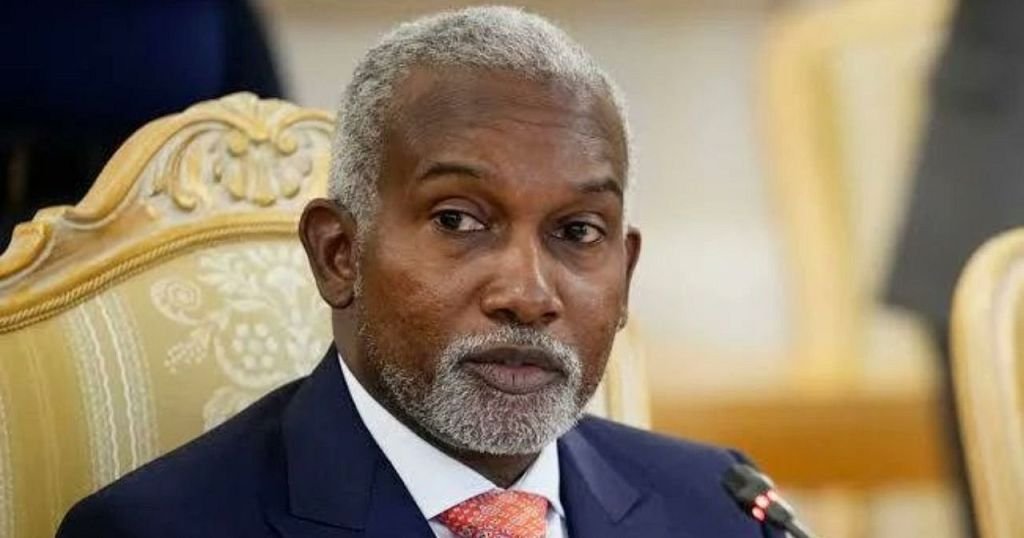
Nigeria won’t accept 300 Venezuelan deportees from the U.S, Foreign Minister Yusuf Maitama Tuggar said in a TV interview on Thursday, following reports that the White House was pushing African leaders to take in illegal immigrants from third-party countries.
In a surprise move, Tuggar started quoting U.S rapper Flavour Flav as a guest on Channels Television’s ‘Politics Today’ in response to news of Washington’s latest deportation policy,
“You’ll remember af line from Flavour Flav: Flavour Flav has problems of his own, I can’t do nuttin’ for ya man”, Tuggar said, referencing the rapper’s famous 1990 track.
The quote follows reports by The Wall Street Journal that five African leaders participating in a summit at the White House from July 9-11 had received letters pushing them to accept migrants deported by the U.S. whose home countries refuse to take them back.
The U.S had also asked Nigeria to take in deportees, Tuggar said, but he argued it would be ‘unfair’ given current issues in the country,
”We have enough problems of our own. We cannot accept Venezuelan deportees to Nigeria for crying out loud”.
Instead, the Foreign Minister said that Nigeria was open to doing business with the U.S emphasising critical minerals and gas trade as potential avenues for future cooperation,
”Nigeria is in a very good position to continue a symbiotic relationship with the U.S”, he said.
While Nigeria appears to reject U.S deportees for now, other countries are facing mounting pressure to comply with Trump’s new immigration policy.
On Monday, South Sudan accepted eight men, including nationals from Myanmar, Cuba, Vietnam, Laos, and Mexico all convicted of serious crimes like murder and sexual assault.
Previous removals have gone to El Salvador and Costa Rica, and talks are reportedly ongoing with countries like Rwanda, Benin, and Moldova.
Africa
UN warns millions will die by 2029 if new funding for HIV programs isn’t found
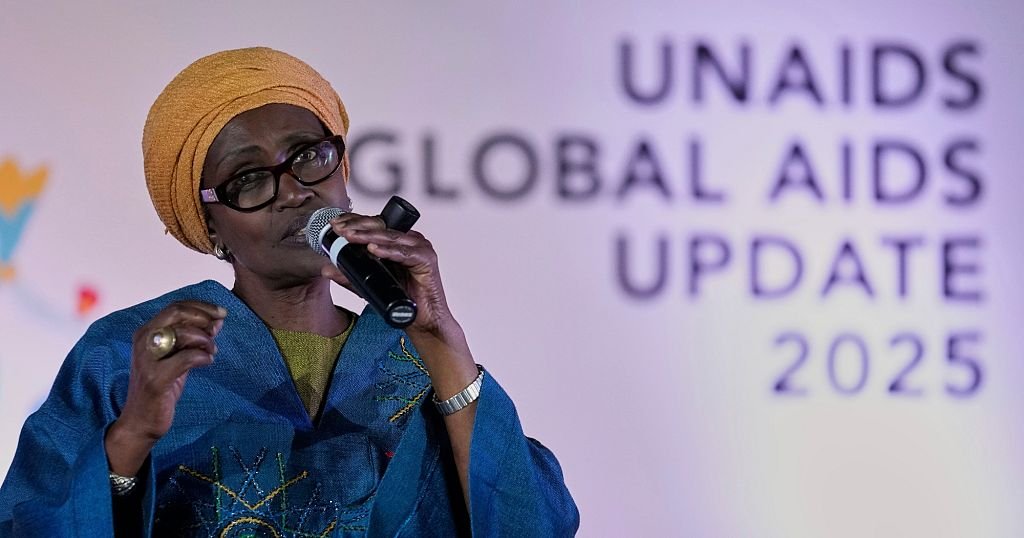
Years of American-led investment into AIDS programs have reduced the number of people killed by the disease to the lowest levels seen in more than three decades and provided life-saving medicines for some of the world’s most vulnerable.
But in the last six months, the sudden withdrawal of U.S. money has caused a “systemic shock,” U.N. officials warned, adding that if the funding isn’t replaced, it could lead to more than 4 million AIDS-related deaths and 6 million more HIV infections by 2029.
A new UNAIDS report released Thursday said the funding losses have “already destabilized supply chains, led to the closure of health facilities, left thousands of health clinics without staff, set back prevention programs, disrupted HIV testing efforts and forced many community organizations to reduce or halt their HIV activities.”
It also said that it feared other major donors scaled back their support, reversing decades of progress against AIDS worldwide — and that the strong multilateral cooperation is in jeopardy because of wars, geopolitical shifts and climate change.
A ‘lifeline’ removed
The $4 billion that the United States pledged for the global HIV response for 2025 disappeared virtually overnight in January, when U.S. President Donald Trump ordered that all foreign aid be suspended and later moved to close the USAID.
Andrew Hill, an HIV expert at the University of Liverpool who is not connected to the United Nations, said that while Trump is entitled to spend U.S. money as he sees fit, “any responsible government would have given advance warning so countries could plan,” instead of stranding patients in Africa where clinics were closed overnight.
The U.S. President’s Emergency Plan for AIDS Relief, or PEPFAR, was launched in 2003 by U.S. President George W. Bush, the biggest-ever commitment by any country focused on a single disease.
UNAIDS called the program a “lifeline” for countries with high HIV rates, and said that it supported testing for 84.1 million people, treatment for 20.6 million, among other initiatives. According to data from Nigeria, PEPFAR also funded 99.9% of the country’s budget for medicines taken to prevent HIV.
U.N. Assistant Secretary-General Angeli Achrekar, a UNAIDS deputy executive director who was PEPFAR’s principal deputy coordinator until January 2023, said the program is under review by the Trump administration though Secretary of State Marco Rubio issued a waiver “to continue life-saving treatment.”
““The extent to which it will continue in the future, we don’t know,” she told a video news conference with U.N. reporters in New York. “We are cautiously hopeful that PEPFAR will continue to support both prevention and treatment services.”
A gap impossible to fill
In 2024, there were about 630,000 AIDS-related deaths worldwide, per a UNAIDS estimate — the figure has remained about the same since 2022 after peaking at about 2 million deaths in 2004.
Even before the U.S. funding cuts, progress against curbing HIV was uneven. UNAIDS said that half of all new infections are in sub-Saharan Africa.
Tom Ellman of Doctors Without Borders said that while some poorer countries were now moving to fund more of their own HIV programs, it would be impossible to fill the gap left by the U.S.
“There’s nothing we can do that will protect these countries from the sudden, vicious withdrawal of support from the U.S.,” said Ellman, head of the group’s South Africa medical unit.
Experts also fear another significant loss — data.
The U.S. paid for most HIV surveillance in African countries, including hospital, patient and electronic records, all of which has now abruptly ceased, according to Dr. Chris Beyrer, director of the Global Health Institute at Duke University.
“Without reliable data about how HIV is spreading, it will be incredibly hard to stop it,” he said.
Africa
Bill granting head of Mali’s junta, Gen. Assimi Goita, five more years in power signed into law
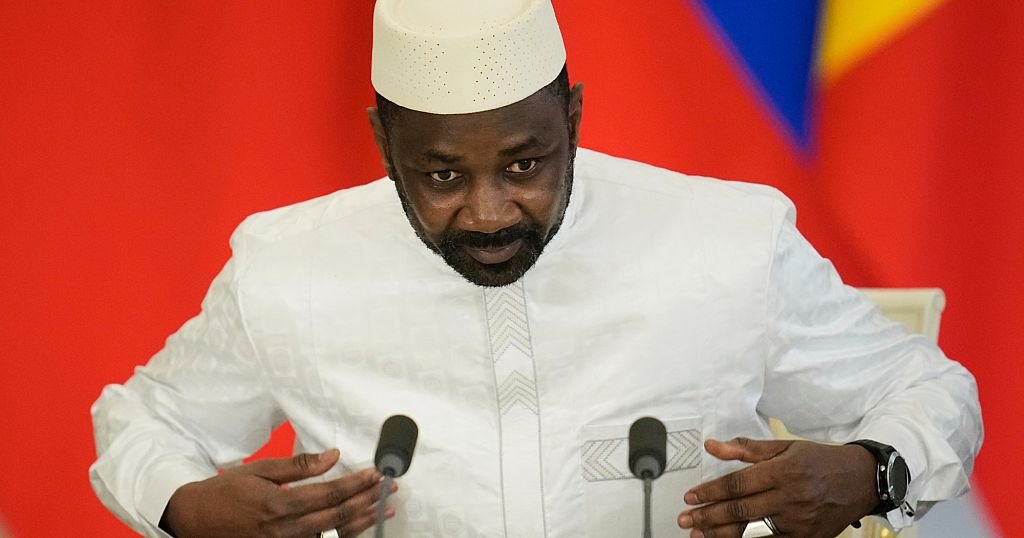
The head of Mali’s junta General Assimi Goita has granted himself a five-year presidential mandate, renewable “as many times as necessary” and without election, in a bill signed into law on Thursday.
The bill implemented recommendations of the national dialogue consultations organised by the military regime in April and boycotted by political parties. It was passed by the military-appointed legislative body last week.
The law, which Goita approved on Tuesday, allows him to lead the West African nation until at least 2030, despite the military government’s initial pledge to return to civilian rule in March 2024.
In May, he signed a decree dissolving all political parties. It coincided with a surge in kidnappings of pro-democracy activists in the capital, Bamako, and just days after a demonstration by several hundred activists.
Restrictions on freedom
The new law is the latest in a series of restrictions on freedoms by Mali’s military leadership to consolidate its power in the jihadist-hit Sahelian nation.
Goita has led the country since orchestrating two coups in 2020 and 2021 as an insurgency by jihadi groups linked to al-Qaida and the Islamic State group worsened.
Mali, a landlocked nation in the semiarid region of Sahel, has been embroiled in political instability that swept across West and Central Africa over the last decade.
-

 Asia4 days ago
Asia4 days agoIndonesia’s Mount Lewotobi Laki Laki erupts sending ash 11 miles into sky
-

 Africa3 days ago
Africa3 days agoCairo telecom fire injures 14, disrupts internet nationwide
-

 Europe3 days ago
Europe3 days agoHe was born to a US citizen soldier on an army base in Germany. Now he’s been deported to Jamaica, a country he’d never been to
-

 Asia3 days ago
Asia3 days agoA torpedoed US Navy ship escaped the Pacific in reverse, using coconut logs. Its sunken bow has just been found
-

 Europe2 days ago
Europe2 days agoTrump promised 200 deals by now. He’s gotten 3, and 1 more is getting very close
-
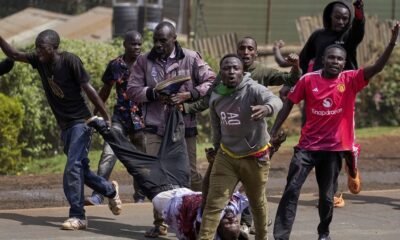
 Africa4 days ago
Africa4 days agoKenya: at least 10 dead in ongoing protests, 29 injured nationwide
-

 Lifestyle3 days ago
Lifestyle3 days agoArmani couture channels black as maestro misses Paris bow for 1st time, days from 91st birthday
-
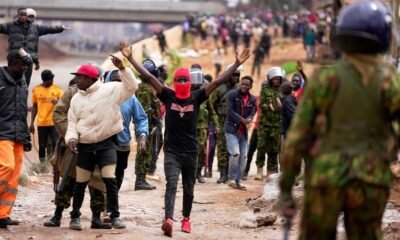
 Africa3 days ago
Africa3 days agoUN Human Rights Office says ‘deeply troubled’ by Kenya protester deaths




